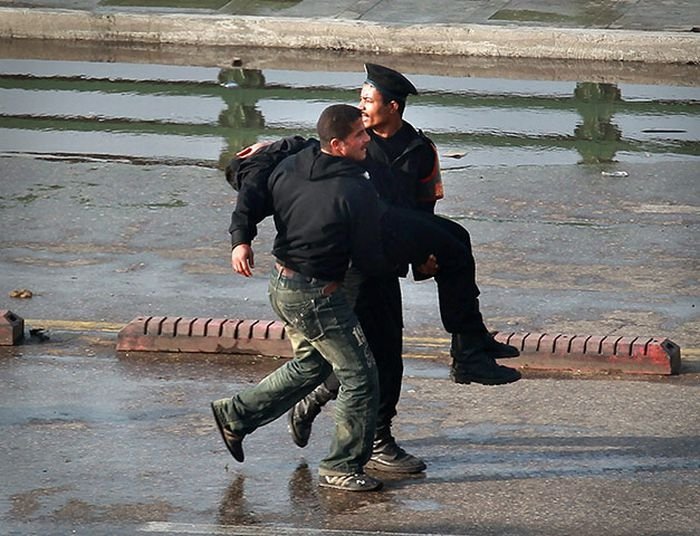|
|
The 2011 Egyptian Protests
|
Protesters were described by reporters as more confident than the previous day and earlier, and even celebratory as they felt they were nearing their objective—the end of Mubarak's presidency—although they had no tangible evidence that it was coming about. An eyewitness told Al Jazeera that people of all ages, men and women were present. Despite the curfew, people were on the streets and no one was attempting to stop them. Looting was also reported, while no police were visible on Cairo's streets.
Access to the Pyramids in Giza was suspended; however, the resort town of Sharm-el Shaikh was said to be calm.
Eyewitnesses have said that "party thugs" associated with the Egyptian regime's Central Security Forces bearing government-issued weapons have been looting in Cairo. News from inside Alexandria as reported by an eye witness on Al-Arabiya news channel via phone, that a group of people captured a number of armed civilians trying to break into a local bank and after some investigation they learned that those armed civilians were actually part of the "Egyptian Undercover Police" with orders to create chaos. Emad Gad, an analyst with the Al-Ahram Center for Political and Strategic Studies, said that he has obtained information from a trustworthy source that "there have been orders from the very top to free known felons from the prisons, to arm them and to let them mingle with protesters."
In Beni Suef, south of Cairo, 17 protesters were shot dead by Egyptian police as they attempted to attack two police stations in the city. Eight more people were killed during protests in the city. In the Abu Zabaal prison in Cairo, eight people were killed as police clashed with inmates trying to escape. According to a Reuters tally, these deaths bring total death toll to at least 100; however, no figures could be accurately confirmed.
|
|









